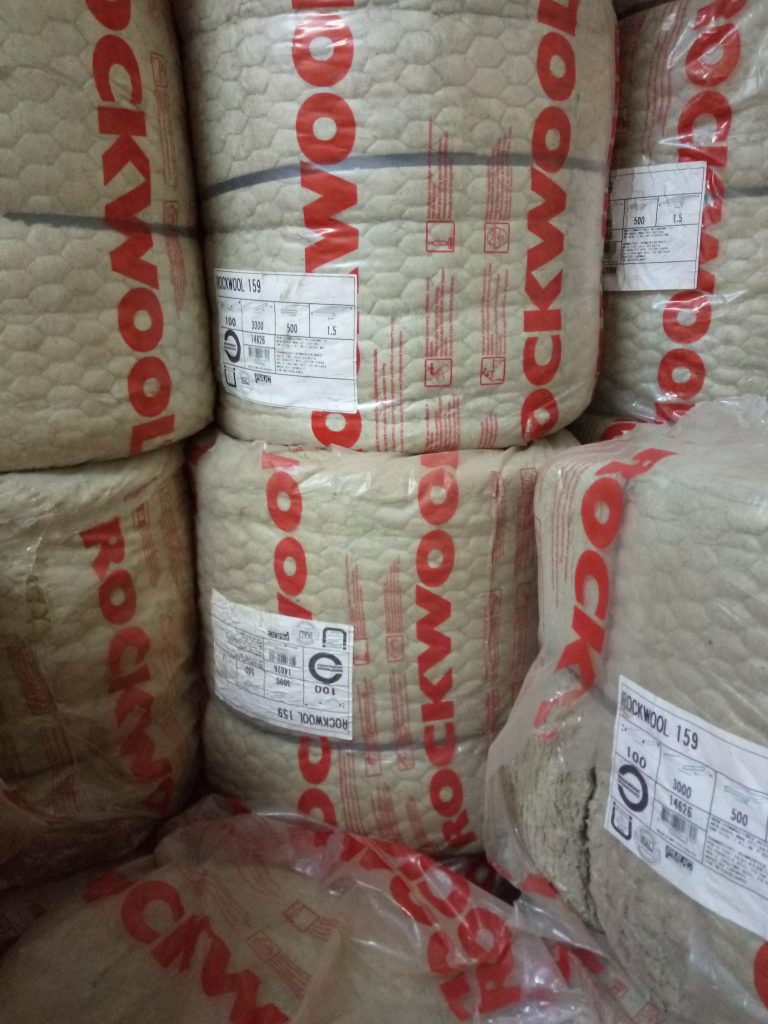
Call 0720-847049, to get the best rockwool prices in Kenya, from the leading suppliers of Rockwool, glass fiber and other insulation materials in Nairobi.
Kingsman Eng. & Industrial Insulation are the leading suppliers of Rock wool, which is also called mineral wool in Kenya. Rock wool comes in easy-to-install batts, similar to fiberglass. But instead of being composed of fluffy glass fibers, rock wool is made of rocks, which doesn’t even seem possible. Here’s a brief explanation of the manufacturing process.
Natural rock is heated in a furnace to about 3,000 degrees until it melts into a liquid. The magma-like liquid is exposed to a high-pressure jet of air or steam, and then spun at super-high speed into long fiber strands. (Think: cotton candy machine filled with liquid rock.) The strands are captured and compressed into thick, dense mats, which are then cut into convenient-sized batts of insulation.
Rock wool features:
- Made from natural, sustainable material
- Typically contains up to 75 percent recycled content
- Retains heat well and traps air, which slows the transfer of heat
- Non-combustible and fire resistant to about 1,400 degrees
- Highly water repellent
- Excellent sound-deadening properties
- Higher insulating value than fiberglass
- Long-term performance—rock wool doesn’t degrade over time
- Allows moisture to escape (which deters mold and mildew)
- Dense, firm batts are friction-fit into place; no stapling necessary
Applications of Rock Wool Insulation in Kenya
- Rock-wool insulation can be installed wherever you’d install fiberglass or any other type of insulation, including walls, floors, ceilings, attics and crawlspaces. However, it’s particularly well-suited for rooms along the cold north side of the house and for interior rooms in need of sound deadening, such as media rooms or music studios.
- Because rock wool is highly fire resistant, it’s ideal—and often code-required—for use as a firestop between floors of a house
- Rock wool is also easy to work with: The firm batts can be cut with a serrated knife or handsaw to fit snugly into place. If it gets wet, water beads up and rolls off without soaking into the fibers. The rock-wool fibers are compacted so tightly together that there’s no chance of the insulation shifting out of position or slumping down, which would dramatically decrease its insulating value.
.
